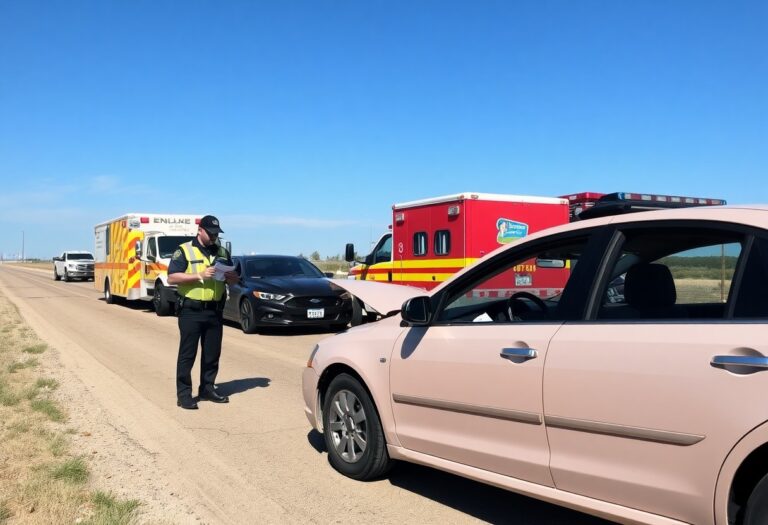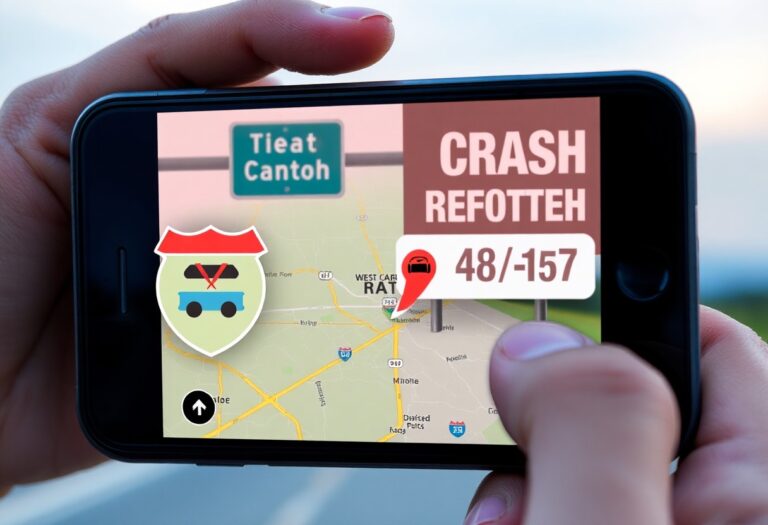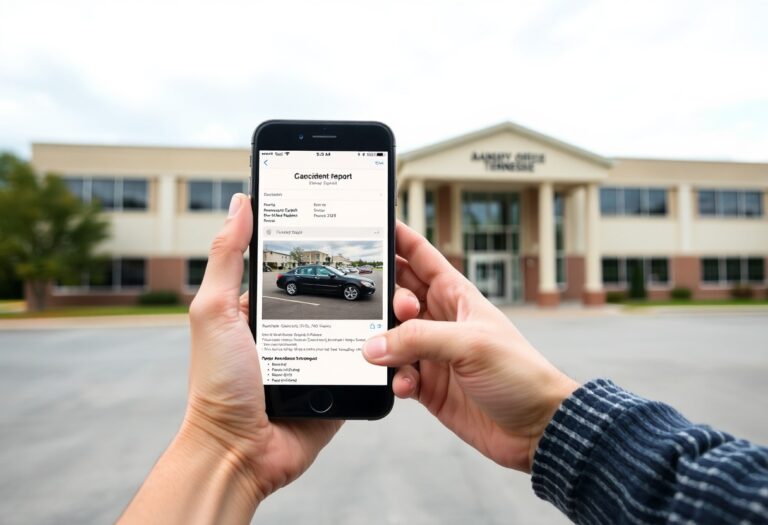Just when you need clarity after a car accident, knowing how to access your car accident reports in Colorado County, Texas, can greatly benefit you. This step-by-step guide will walk you through the process, ensuring you have all the information you need at your fingertips. Whether you need these reports for insurance claims, legal purposes, or personal records, understanding the system will empower you to take the right actions for your situation. Dive in to simplify your journey and gain the insight you deserve.
Navigating the Bureaucracy: Where to Start
Starting the process of obtaining car accident reports in Colorado County requires an understanding of the local bureaucracy. You’ll need to identify who holds the records and the specific procedures to access them. Begin with the Colorado County Clerk’s Office or the Texas Department of Public Safety, as they typically manage traffic incident reports. Knowing the exact location and their operating hours can save you time and make your request smoother.
Identifying the Relevant Authorities
Your first step is pinpointing the appropriate authorities. In Colorado County, the Colorado County Sheriff’s Office and the Texas Highway Patrol are pivotal in managing car accident reports. Each authority may have varying procedures for report requests, so ensure you know where to go or whom to contact.
Understanding Your Rights as a Requester
As a requester, you possess certain rights under the Texas Public Information Act, which allows you to access public records, including car accident reports. This means you can seek information without undue hindrance, and authorities are obligated to provide relevant documents within specified timelines. Understanding these rights empowers you to follow up effectively if your request is delayed or denied.
Rights under the Texas Public Information Act enable you to challenge unlawful denials or excessive charges associated with accessing reports. For example, if an agency fails to respond within ten business days, you are entitled to escalate the matter. Additionally, the Act promotes transparency, ensuring important information about accidents can be shared with you and the public. Always keep a record of your communications and details of your request, as this can aid in clarifying your rights if needed later.
The Request Process: Step-by-Step Instructions
| Step | Description |
| 1 | Gather information about the accident, including the date, location, and involved parties. |
| 2 | Complete the request form, ensuring all fields are accurately filled out. |
| 3 | Submit the request via mail, fax, or online submission as designated by the local authorities. |
| 4 | Pay any applicable fees to process your request. |
| 5 | Receive confirmation of your request and await the report to be processed. |
Preparing Necessary Documentation
Before initiating your request, gather any documentation that supports your case. This may include your driver’s license number, the report number (if available), or the details of the accident. Collecting this information will streamline the process, ensuring that the authorities can locate your report quickly and efficiently.
Submitting Your Request: Channels and Methods
Requests for car accident reports can typically be submitted through various channels. Whether you choose to send your request via mail, fax, or use an online portal, ensure that you have all necessary documents and fees prepared to expedite the process.
For online submissions, many counties provide dedicated platforms where you can fill out your request form directly, attach supporting documents, and even pay fees electronically. If you opt for mailing, send your request to the appropriate office, ensuring it is well-addressed and includes any payment required. For those who prefer direct interaction, visiting the local law enforcement agency in person may facilitate quicker access and assistance in completing your request efficiently.
Potential Pitfalls: Common Challenges in Accessing Reports
Accessing car accident reports in Colorado County can present several challenges. Understanding potential pitfalls is key to streamlining the process. For instance, navigating bureaucracy can lead to delays, while incomplete information can impede your request. Additionally, some individuals underestimate the intricacies of local policies, which can complicate the retrieval process. Being aware of these obstacles ahead of time enables you to approach the request with confidence and preparedness.
Misunderstandings About Fees and Timelines
Many individuals are caught off guard by unexpected fees and extended timelines when requesting car accident reports. While some jurisdictions offer reports at no charge, others may impose a nominal fee per page or require payment upfront. Additionally, processing times can vary significantly, sometimes taking weeks rather than the anticipated days. Familiarizing yourself with the specific costs and timelines can help you avoid surprises.
Dealing with Denials: What to Do Next
If your request for an accident report is denied, it’s not the end of the road. Start by reviewing the reason for the denial, which you should receive in writing. Often, denials stem from insufficient information or failure to comply with specific requirements. Address this promptly by gathering any missing documentation or revisiting your application to ensure all necessary details are provided.
In cases where an appeal is warranted, reaching out directly to the issuing department can clarify what additional information is needed. You might need to provide further identification or corroborative evidence to support your case. Learning the specific rules governing denials can also empower you to navigate the situation more effectively. Keep communication lines open and remain persistent, as resubmitting your request with the right modifications can often lead to a successful outcome.
The Importance of Car Accident Reports in Legal Contexts
Car accident reports serve as official documentation of an incident, outlining key facts such as date, time, location, and parties involved. These reports provide a comprehensive overview of the circumstances surrounding an accident, making them vital in legal situations. They often contain witness statements and law enforcement assessments, which can directly influence how liability is determined during personal injury claims and disputes. Understanding their significance enables you to navigate your legal options more effectively.
How Reports Impact Insurance Claims
Insurance claims heavily rely on the information provided in car accident reports. Insurers analyze these reports to assess coverage applicability, determine fault, and quantify claims. A well-documented report can expedite the claims process, ensuring you receive adequate compensation for damages and injuries. If discrepancies arise in the report, it may lead to a longer, more complicated claims process or even denial of your claim.
The Role of Reports in Legal Proceedings
Car accident reports play a pivotal role in legal proceedings by serving as evidence that can substantiate your case. They provide a factual basis for establishing negligence or liability, making them invaluable in court. In lawsuits related to personal injury, these reports may assist attorneys in presenting a clear narrative of the events, facilitating an equitable resolution.
In legal contexts, attorneys often detail how various elements in the accident report impact the case’s trajectory. For example, the presence of eyewitness accounts can bolster your claims, while conflicting statements may necessitate further investigation. Reports that note traffic violations or unsafe conditions can also substantiate claims of negligence. In serious cases that go to trial, the thoroughness of these reports can either fortify or weaken your legal standing, highlighting the importance of securing and understanding them early in the process.
Additional Resources for Victims and Families
Accessing support after a car accident can significantly impact your recovery. Several resources are available in Colorado County that provide assistance to victims and their families, including counseling services, financial aid, and community support networks. Whether you’re looking for emotional support or practical help with daily tasks, you can find organizations ready to help you navigate this challenging time.
Support Services Available in Colorado County
In Colorado County, you can access various support services to help you cope with the aftermath of a car accident. Local nonprofits offer counseling programs to assist with emotional healing, while community groups may provide resources like meal delivery or transportation services. By connecting with these organizations, you can find the support you need to regain your footing.
Asking for Help: Legal Aid and Advocacy Groups
Accessing legal assistance can feel overwhelming, but Colorado County offers several legal aid and advocacy groups to help you navigate the complexities of accident claims. These organizations offer free or low-cost services, ensuring that you can receive the legal guidance necessary to pursue your case and protect your rights following an accident.
Many legal aid organizations in Colorado County, such as the Texas RioGrande Legal Aid and other local nonprofits, focus on ensuring that victims of car accidents receive fair treatment. These groups not only provide legal representation but also offer educational resources to help you understand your rights in the aftermath of an accident. They can assist you with filing claims, negotiating settlements, and addressing any disputes that may arise with insurance companies. By leveraging their expertise, you can focus on healing while they advocate vigorously on your behalf.
Summing up
Ultimately, by following the outlined steps to access car accident reports in Colorado County, Texas, you can efficiently obtain the information you need to address your situation. Whether you’re seeking a report for insurance purposes or personal records, knowing how to navigate the local system will save you time and potential stress. With the right approach, you can ensure that you have all the details necessary for your case, empowering you to move forward with confidence.













